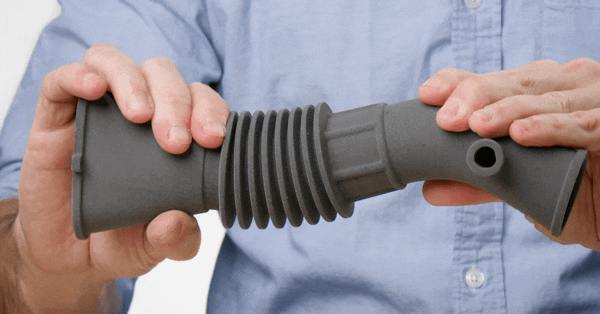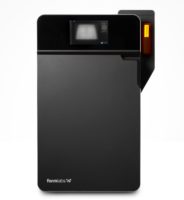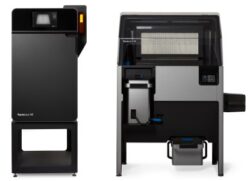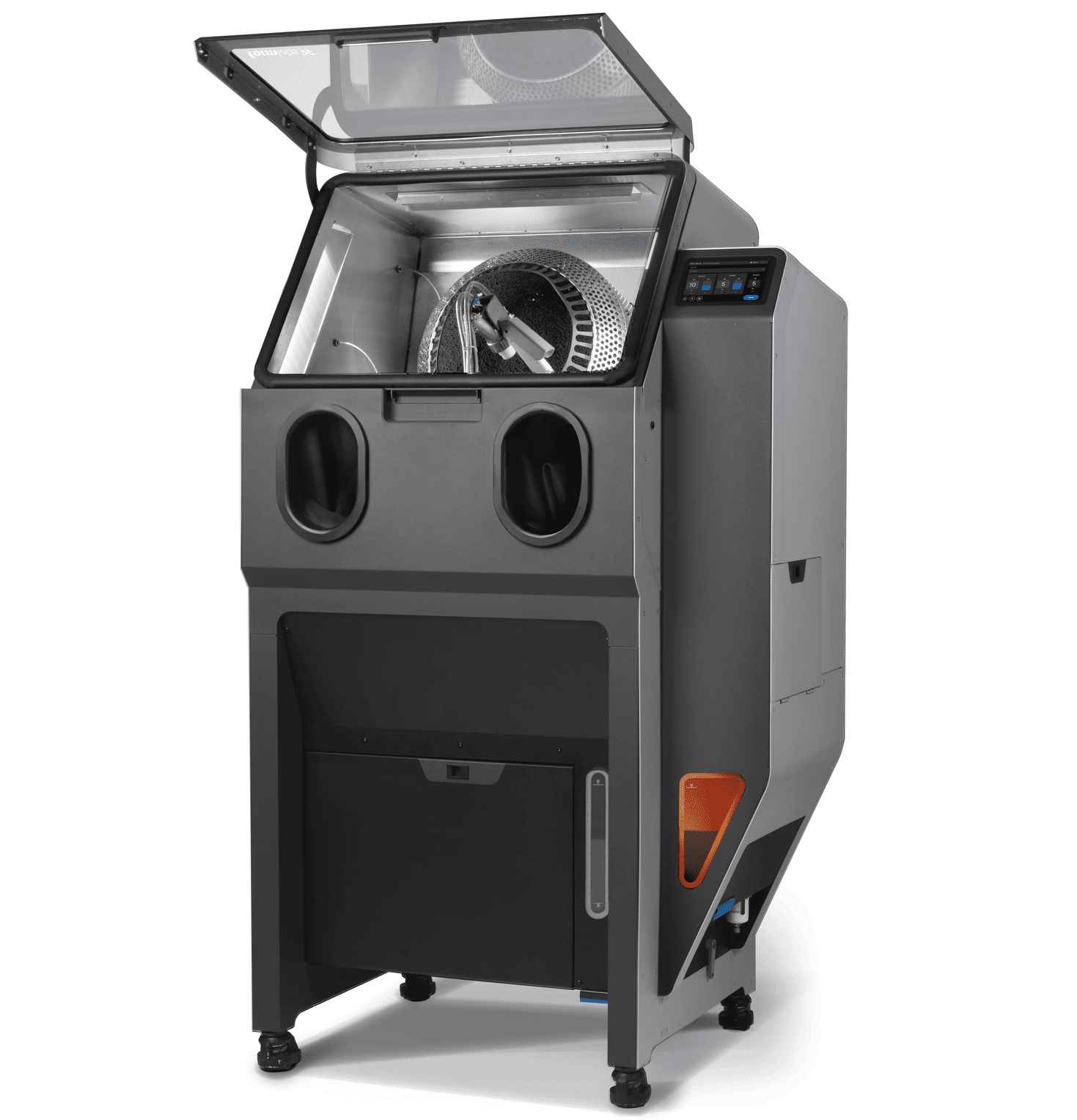Formlabs® TPU 90A Powder
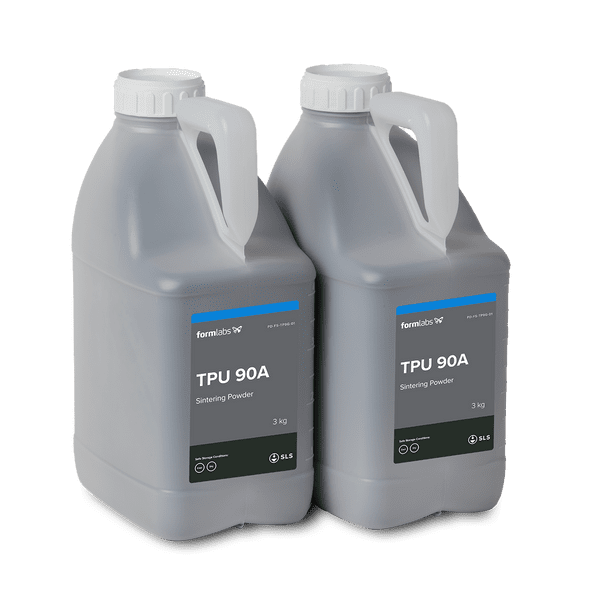
Formlabs®
TPU 90A Powder
Biocompatible SLS Powder for Flexible Parts
TPU 90A powder has an exceptional strength and flexibility to produce fully functional and durable SLS 3D printed parts in-house. Its high elongation and superior tear strength allow you to produce a myriad of functional prototypes, end-use parts and even medical devices or prosthetics that withstand the demands of daily usage. Formlabs' TPU 90A is a biocompatible 3D printing material.
Freedom of Design with TPU 90A Powder
TPU 90A Powder has a Shore hardness rating of 90A, placing it in the medium-soft material category between pencil erasers and tire treads. Nonetheless, SLS 3D printing provides design freedom that permits users to modify part designs by adding full or hollowed sections or lattices of varying density. This ability to modify the design allows for control over the durometer of the final product, allowing for the creation of harder and softer parts.
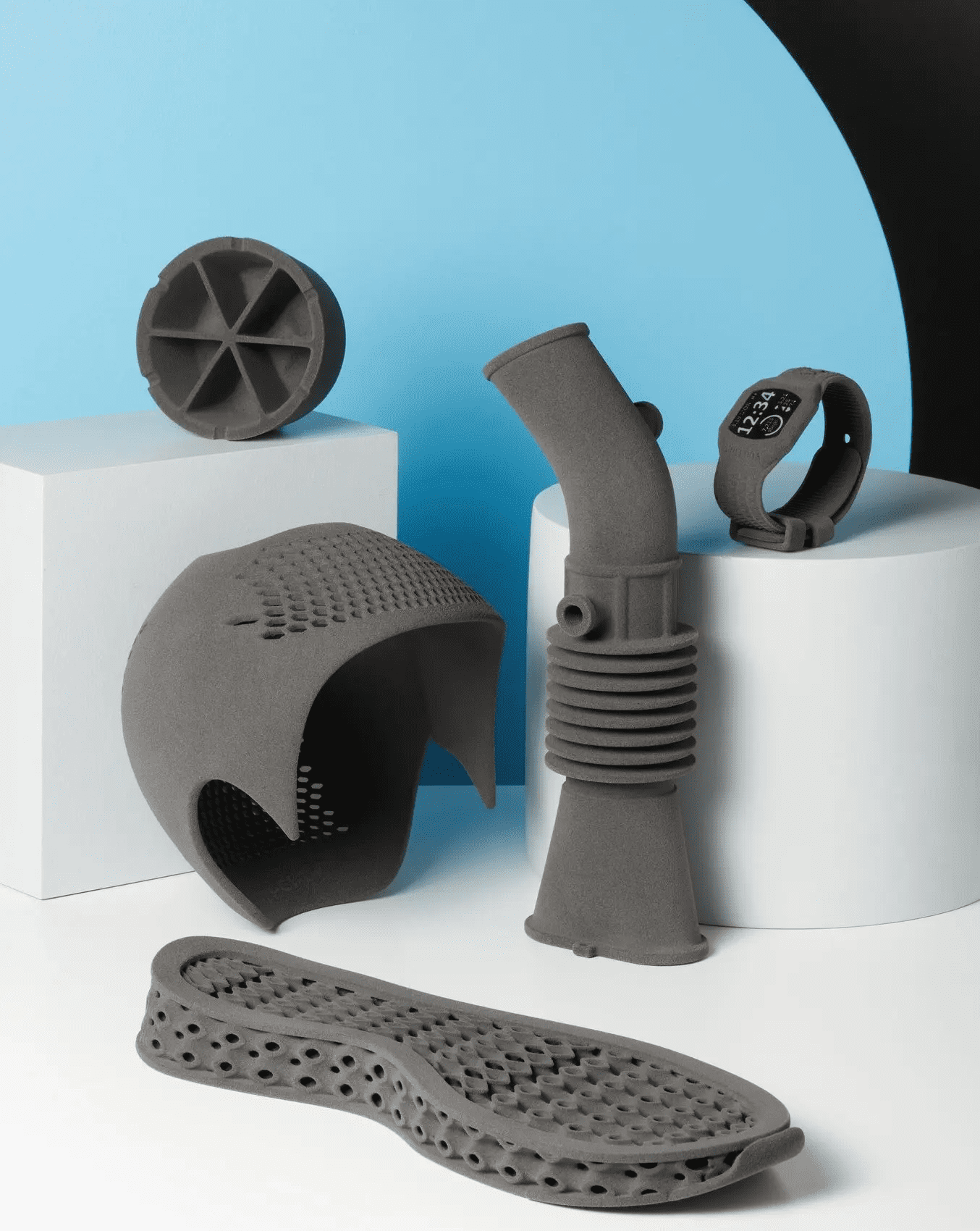
Material Performance*
![]() TEAR STRENGTH (X/Y)
TEAR STRENGTH (X/Y)
66 kN/M
![]() ELONGATION AT BREAK (X/Y)
ELONGATION AT BREAK (X/Y)
310%
![]() POWDER REFRESH RATE
POWDER REFRESH RATE
20%
![]() SHORE HARDNESS
SHORE HARDNESS
90A
*Material properties may vary based on part design and manufacturing practices. It is the manufacturer’s responsibility to validate the suitability of the printed parts for the intended use.
FDM TPU vs. SLS TPU 3D Printing
TPU can be 3D printed on either FDM or SLS 3D printers. Each technology has unique advantages. Yet, it is important to determine what is best for your own workflow and business needs before choosing a technology.
| FDM TPU 3D Printing | SLS TPU 3D Printing | |
| Functional Material Strength | ★ ★ ☆ ☆ ☆ | ★ ★ ★ ★ ★ |
| Resolution | ★ ★ ☆ ☆ ☆ | ★ ★ ★ ★ ☆ |
| Accuracy | ★ ★ ★ ★ ☆ | ★ ★ ★ ★ ★ |
| Surface Finish | ★ ★ ☆ ☆ ☆ | ★ ★ ★ ★ ☆ |
| Throughput | ★ ★ ☆ ☆ ☆ | ★ ★ ★ ★ ★ |
| Complex Designs | ★ ★ ☆ ☆ ☆ | ★ ★ ★ ★ ★ |
| Ease of Use | ★ ★ ★ ★ ★ | ★ ★ ★ ★ ☆ |
| Pros | Low-cost consumer machines and materials Fast and easy for simple, small parts |
Functional, strong, isotropic parts Production-level throughput Self-supported designs Excellent design freedom |
| Cons | Parts are anisotropic and not watertight or functionally strong Limited design freedom |
Slightly rough surface finish |
| Applications | Low-cost rapid prototyping Basic proof-of-concept models |
Functional prototyping Low volume production of end-use parts: automotive gaskets, seals, manifolds, consumer goods, shoes, prosthetics and orthotics |
Types of Applications
You can produce works-like prototypes or robust end-use parts in-house with TPU 90A, a tough elastomer validated for skin contact.
- Wearables and soft-touch elements
- Gaskets, seals, masks, belts, tubing
- Soles, splints, orthotics, prosthetics
- Padding, dampers, cushions
